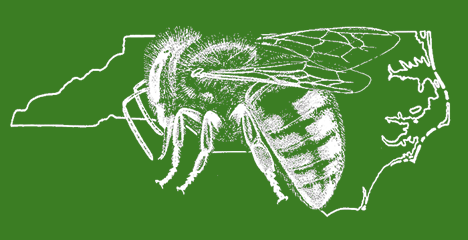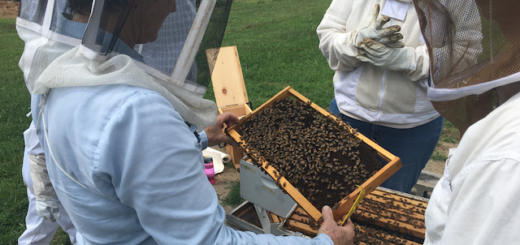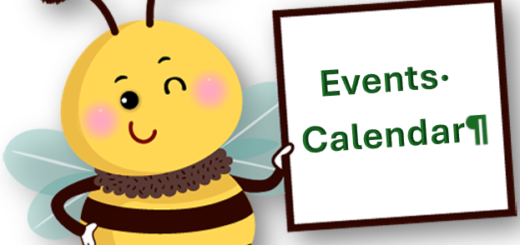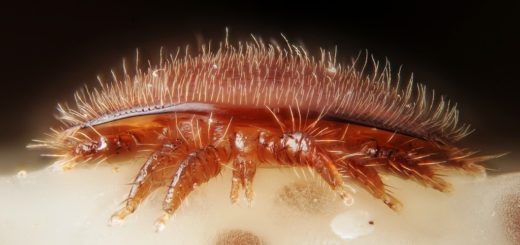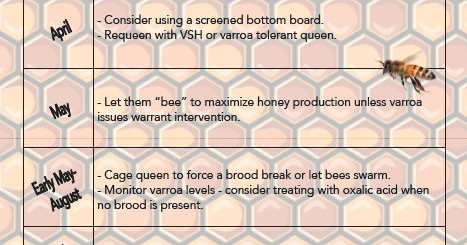In the Apiary: Kory Goldsmith
April 2, 2021
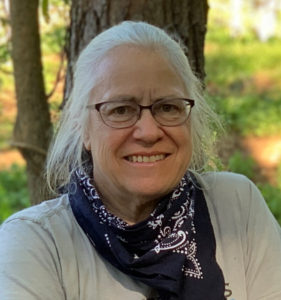
KORY GOLDSMITH
Kory and her husband, Daniel Harnden, have been keeping bees together since the mid-’80s. They have built and maintain an extensive apiary in the northeast portion of Chatham County, where they focus on rearing Caucasian queens.
How long have you been keeping bees?
On and off since 1985, but I have to admit that until 2017, I was much more of a “bee haver” than a “beekeeper”.
Tell me about what drew you to the idea of beekeeping?
In 1984 I became very interested in organic gardening and generally becoming more self-sufficient. That interest brought me from Denver, Colorado to western North Carolina to do an internship at EcoVillage, a back-to-the-land research and demonstration facility near Brevard, North Carolina that was operated by The Mother Earth News magazine. Daniel had arrived a few months earlier. He had been on his way from Florida to Arkansas where he planned to live on some family land, build a mud hut, and raise frogs. Daniel stopped by at Ecovillage just when the resident beekeepers at quit. Daniel had kept bees for several months before getting to Ecovillage, but since no one else had more experience that made him the expert and they asked him to stay on as the resident beekeeper.
Describe the day you got your first package, nuc, or full hive.
I hate to say it, but I don’t remember that day. What I do remember was early in 1985 we split a colony and used the queenless portion to set up an observation hive in a greenhouse. We watched the bees build multiple queen cells and then had the amazing luck to watch several virgins hatch at the same time and actually engage in that fight to the death you always hear about. I was sooooo hooked after that.
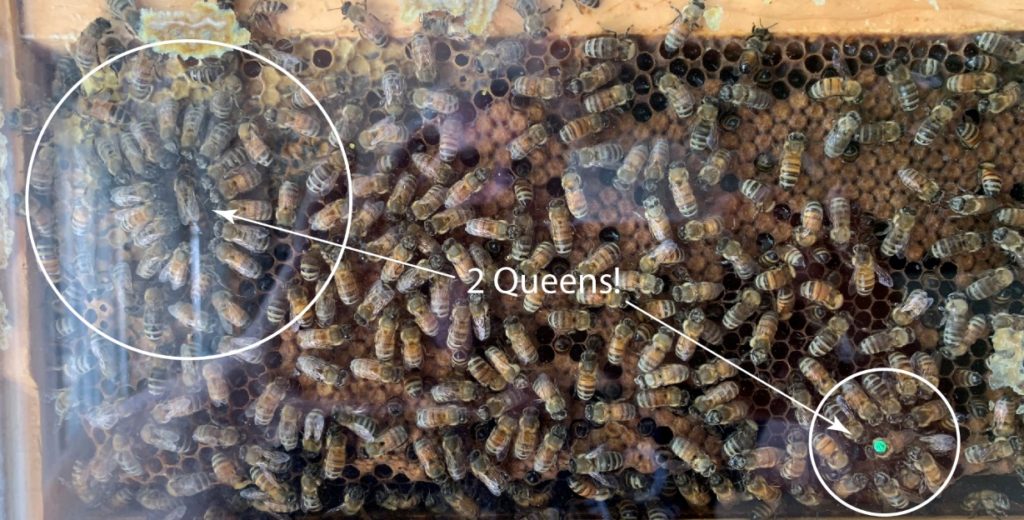
Do you name your queens and/or colonies? If so, share the names and how you came up with them.
Generally not, but last year we had an especially impressive queen in our observation hive. We named her “the Wolf Spider” because she was so large and had such an impressive retinue.
She is the unmarked queen on the left, above.
She was also unique in that for a time, she coexisted with her mother (marked queen on the right).
Tell me about your current hives, including hive style and apiary set-up.
We use Langstroth style, but have a bewildering assortment of 5, 8, and 10 frame deeps and medium hive bodies and supers. We also use “resource hives” which are 10 frame boxes with a divider in the middle which creates two 4-frame chambers. These are topped with 4-frame supers. We use both plastic and wax foundation as well as wooden and plastic frames. Guess you could say consistency is not our strength.
Something that is kind of unique that we use are metal disk entrances. (Below)
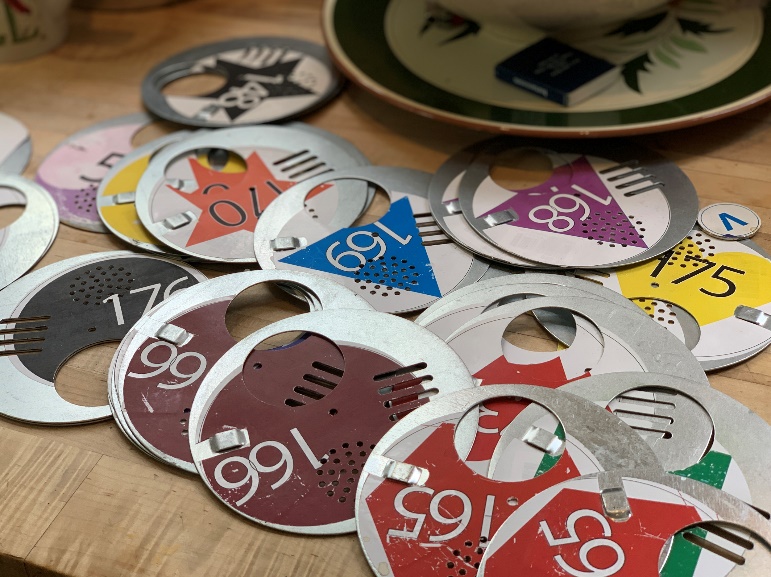
First, we drill 1.25-inch holes in the front and back of the box, then we wedge a narrow block of wood to block access via the bottom board. Then we screw the discs onto the front and back to box.
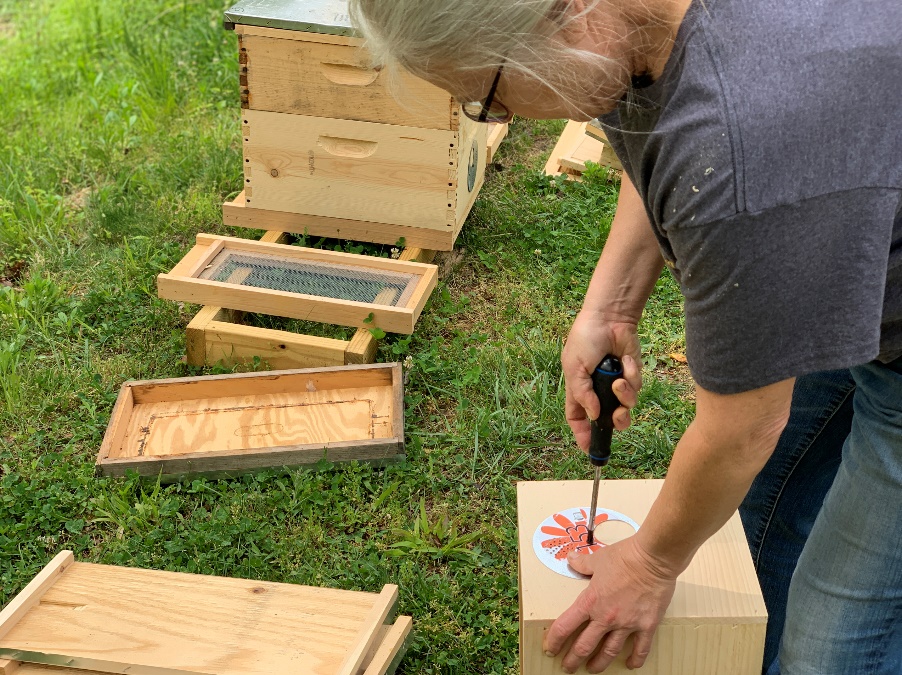
We like these for a number of reasons. First, they make it very easy to close up a colony if, for example, you need to move it. They also allow you to close down an entrance to about the size of an almond which allows even very small colonies to protect themselves during robbing season.
In addition, Daniel has developed stick-on labels that provide different visual targets for returning virgins as well as numbers for our record keeping.
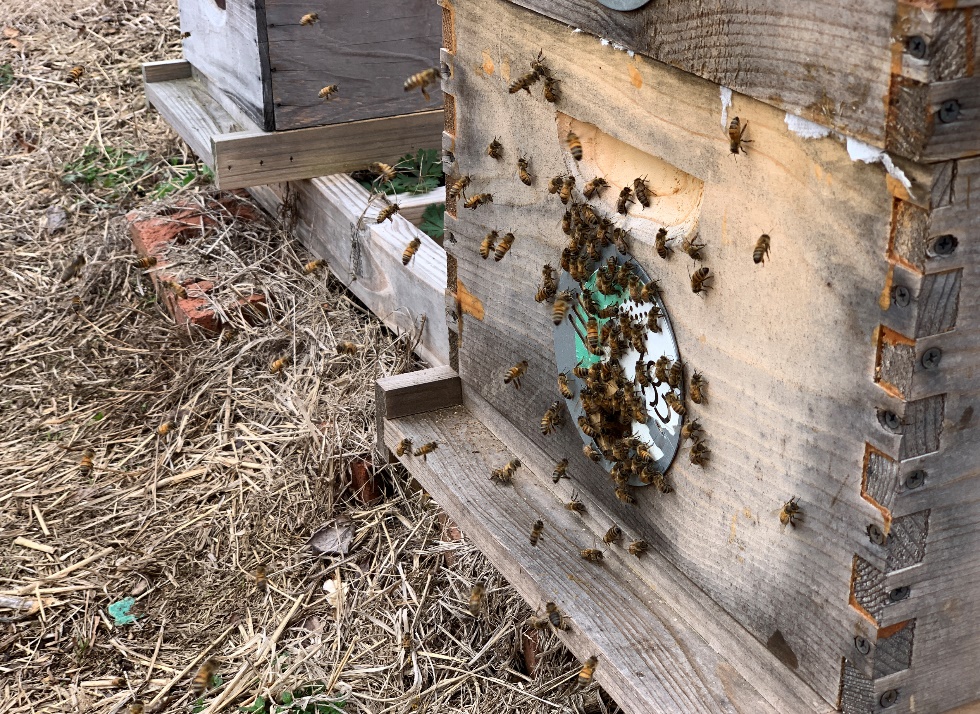
Here is an example of the hive inspection sheets we have developed. (Below)
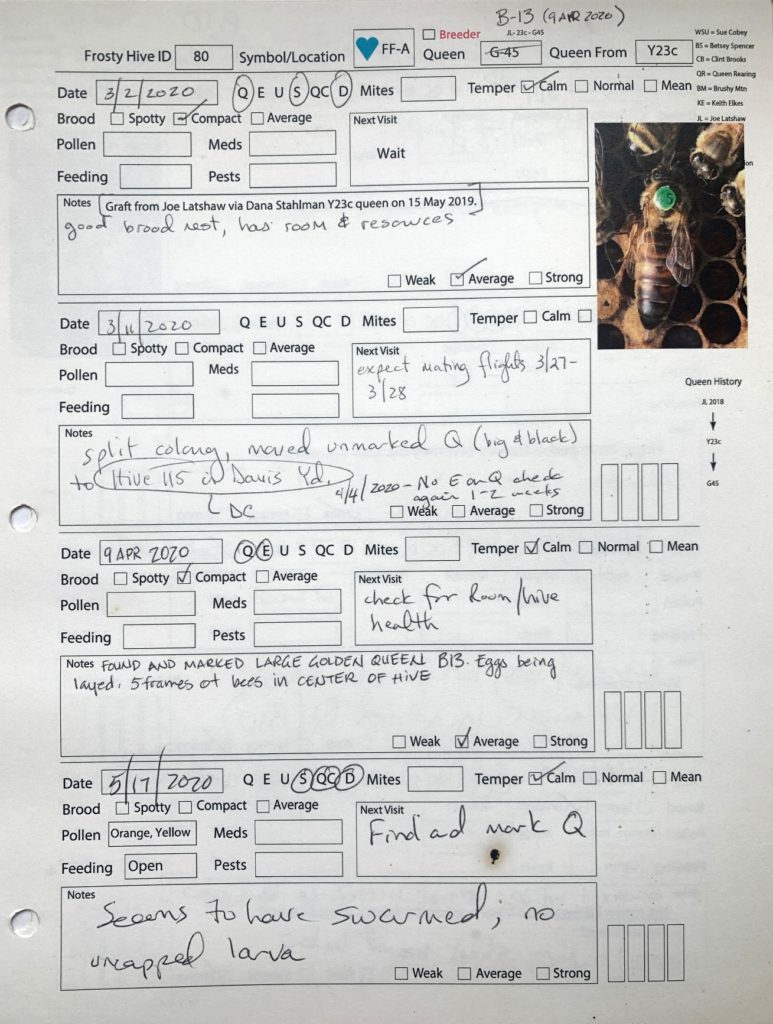
The use of discs, numbering of hives, marking of queens, and hive sheets have all evolved over the last few years as the number of hives we keep has increased (35 -135 depending on the time of year spread over 3 yards). Some of it is probably overkill and we’ll continue to refine things, but our goal is to raise local queens and provide strong nucleus colonies to other beekeepers.
What is your favorite thing about keeping bees?
So many things! The sound of the apiary. The spicy smell of propolis. Staying in touch with the seasons. The fact that bees “didn’t read the book.” And swarms – they are just the coolest animal behavior ever!
How would you describe your beekeeping philosophy?
Go slow and don’t assume you know the answer. Chances are, the bees are going to surprise you.
Tell me your favorite beekeeping story.
This one goes way back. In 1986, Daniel and I were living in a log cabin with no running water at the end of a cartway near the Madison/Buncombe/Haywood county lines. We had a few hives already, but came home from work to find a swam in a pear tree. We had to assemble a hive body and frames, so couldn’t collect it until the next morning.
It had been cold and rainy that night, so the bees were still in a tight cluster and just above head height. This was my first experience with a swarm, so when I asked Daniel if I should wear a veil and he said “No, swarms are gentle.” I didn’t have any reason to doubt him. The plan was for me to hold onto the branch while Daniel sawed it off near the trunk. After that, I would lower the branch and the cluster down into the box. Simple, right?
All was going well until the sawing caused the cluster to start swinging back and forth, back and forth As I gazed up, the now near-viscus clump of bees dropped off the branch and onto my face! They were behind my glasses, in my hair, and probably up my nose. Needless-to-say, I did not listen to Daniel as he called “Stay calm and don’t swat at them” while I ran down the road at full speed and cursing loudly!
As it turned out, these were the meanest bees we have ever owned. We think they were some of the dwindling stock of German black bees that had been popular in the Appalachians. We eventually got them hived and stuck them at the bottom of the garden. Even though they were a good 100 yards from the house, they would still send out guard bees to harass us when we were in the yard.
What was your experience with bees as a child? Any memories that come to you as you think about it?
I don’t have any as I grew up in the middle of a city and my parents weren’t interested in gardening or beekeeping.
Is there a beekeeper or mentor who has inspired you on your beekeeping journey? Feel free to share anecdotes and/or appreciation.
Dana Stahlman – he was a queen breeder in Pennsylania before moving to the Raleigh area. In 2019, he offered a course on queen rearing at the 5BCA bee yard. He demonstrated all the different ways to raise queens and gave participants the opportunity to try each of them. He also generously donated stock from artificially inseminated queens. I learned so much and really appreciated him taking the time to share his wealth of knowledge.
Any advice for a brand new beekeeper?
Attend the Club Apiary Day every chance you get. Chatham County Beekeepers Association is blessed to have so many experienced beekeepers who donate their time. That hands-on experience is really valuable.
Add anything you wish I’d asked but didn’t!
I’ve always appreciated that Daniel and I have beekeeping as a shared hobby. While we can always find a way to bicker about the most trivial detail related to a hive, but at the end of the day, bee keeping brings us closer together and keeps us young.

